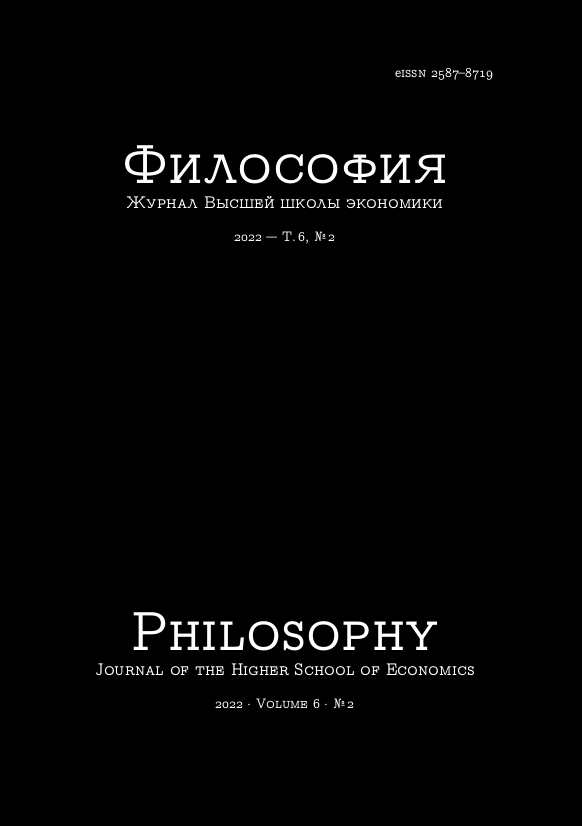Стоическая теория действия и ее скептическая критика
Аннотация
В статье рассматривается стоическая теория действия и ее критика скептиками. Стоики полагали, что агент получает автономию благодаря согласию, которое дается на представление, облеченное в виде высказывания. В этом месте теория действия соединяется с теорией познания, поскольку согласие может даваться как на ценностно нейтральные, так и на ценностно нагруженные высказывания. Возникает вопрос: требует ли правильное поведение наличия адекватных теоретических постигающих представлений или же достаточным залогом успеха деятельности являются правильность практических постигающих представлений? Скептики активно критиковали все разделы учения Стои и часто обращались к понятию «постигающего представления», доказывая, что его не существует. Указывая на недостатки стоической и других догматических теорий, скептики тем самым отрицали познавательную и моральную непогрешимость стоического мудреца. В качестве возможного ответа предлагается различать практический и теоретический уровни постигающего представления. На примере ошибочного согласия на ложное представление показано, что ошибка в теоретическом согласии не обязательно приводит к ошибке в практическом согласии. В ответ на критику со стороны оппонентов пирронизм вынужден был строить не только модель недогматической аргументации, но и собственную модель действия. Скептики приводят аргументы против возражения апраксии, которое заключается в том, что скептик не может действовать до тех пор, пока не даст согласие на то или иное представление. Однако атараксия скептика не предполагает тотального квиетизма и растительной жизни, поскольку оставляет пространство для действия, не привязанного к сфере истинностных высказываний. Дискуссия привела к тому, что стоики стали более сдержанно проводить линию взаимозависимости эпистемологии и этики, а также стали больше внимания уделять именно практическому компоненту своего учения. Скептики же были вынуждены разработать собственную модель действия, согласно которой скептик может действовать, но при этом избегать приверженности мнениям и воздерживаться от суждений.
Скачивания
Copyright (c) 2022 Философия. Журнал Высшей школы экономики

Это произведение доступно по лицензии Creative Commons «Attribution-NonCommercial» («Атрибуция — Некоммерческое использование») 4.0 Всемирная.






